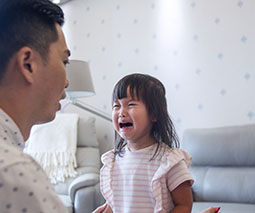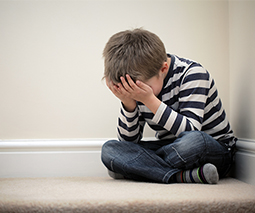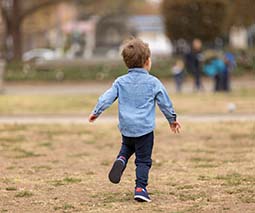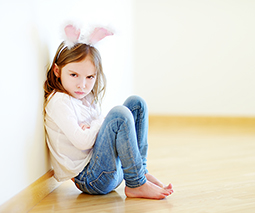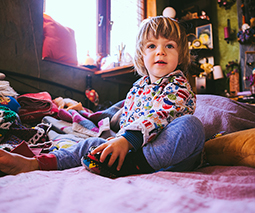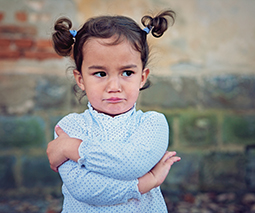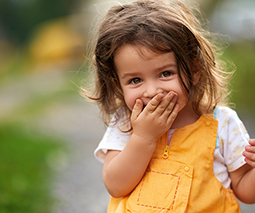Put that camera down! How constantly taking photos of your kids impacts them
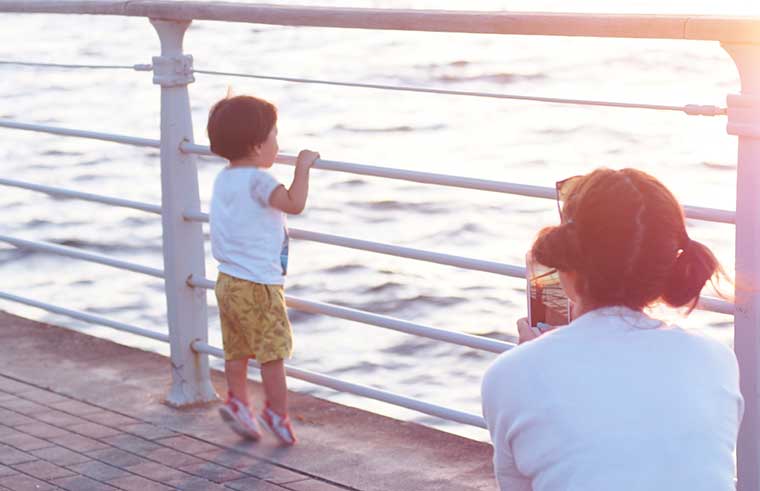
I have great admiration for the instructors at my daughter’s martial arts class. Not only do they have the tedious job of training unruly preschoolers, they now face another challenge – parents with cameras.
Admittedly, there is something adorable about tiny, white-clad humans who struggle to form one line, let alone master a high kick. But when these wannabe ninjas frequently lose their focus to look beckoningly at their spectator parents (who have their cameras poised for the perfect shot), it’s time to question what kind of an impact constantly taking photos of our children is having on them.
Documenting memorable moments
Family digital literacy specialist and creator of TechClever courses, Dr Joanne Orlando, says that although parents view taking lots of photos as a great way to document memorable moments, children might interpret this differently.
“It really takes away from a child just being in the moment … it’s taking away from the enjoyment and moving into a performance,” says Joanne. “Particularly for kids who don’t like having their photo taken or who don’t want to be interrupted; they have to look a certain way or smile … it complicates all their activities.”
Regularly aiming a camera at kids can also lead them to question what’s important to the parent.
“There are other things that a child will think that parent values in them apart from just who they are,” Joanne explains.
It may also send validation messages, such as whether the parent likes the way the child is looking or behaving. “In some ways, children could interpret it as getting a sticker or getting a reward,” says Joanne.
Just because it’s there …
It’s little wonder we feel the need to capture every moment. The quality of phone cameras has dramatically improved over the last ten years, and according to a 2018 Deloitte report, 89 percent of Australians surveyed owned a smartphone.
For mum-of-four Erin Cutler, 33, taking photos or videos of her children has become a daily habit. Particularly of her younger two, who are rapidly moving through developmental milestones.
Erin says her two-year-old loves having his picture taken and often grabs her phone to take photos of his five-month-old sister. Erin notices a distinct change in his behaviour when the camera is around or when he thinks there may be a photo opportunity, like showing off his latest LEGO creation or getting himself dressed.
“If he notices, he’ll stop, and he’ll just stare at you to make sure that you are doing it. He won’t necessarily smile unless you ask him to, but he will try and do something that you would take a photo of and then he’ll come straight around to see what it was,” she says.
“I probably take half a dozen photos, but there’s probably only one good one in there,” says Erin, who usually just keeps them on her phone or shares with the grandparents. “It’s there; why not?”

Snap responsibly
While we will no doubt look back in decades and high five ourselves for capturing special moments, we need to weigh up the costs.
Joanne says it’s about finding a happy medium, but the focus should be on the child, rather than you.
Start by questioning your motives when the temptation strikes to photograph your little one.
“It’s about understanding what you want to get out of these photos … what these photos are for,” says Joanne. If you can’t think of a reason other than to add it to the never-ending stream that’s already on your phone, resist the urge to take it.
Secondly, consider the impact taking photos may have on your children and whether there’s a day or even a week when you don’t have the camera pointed at them.
“If they’re expected to look good every day for photos, then how is that going to affect their relationship with you, whether they can actually just be themselves?” says Joanne.
Finally, don’t treat social media like the family album. “We really need to start thinking of implications for our children who can never take any of that back,” says Joanne.
A report released last year by the London School of Economics found that among parents who use the internet at least monthly, 75 percent share some photos or videos of their children online.
This act of ‘sharenting’ comes with risks – photos of your child may travel more widely than intended and end up being used for unintended purposes.
So next time you reach for your camera, consider being in the moment rather than worrying about missing the moment. You may find it’s just as liberating for you as it is your child.
